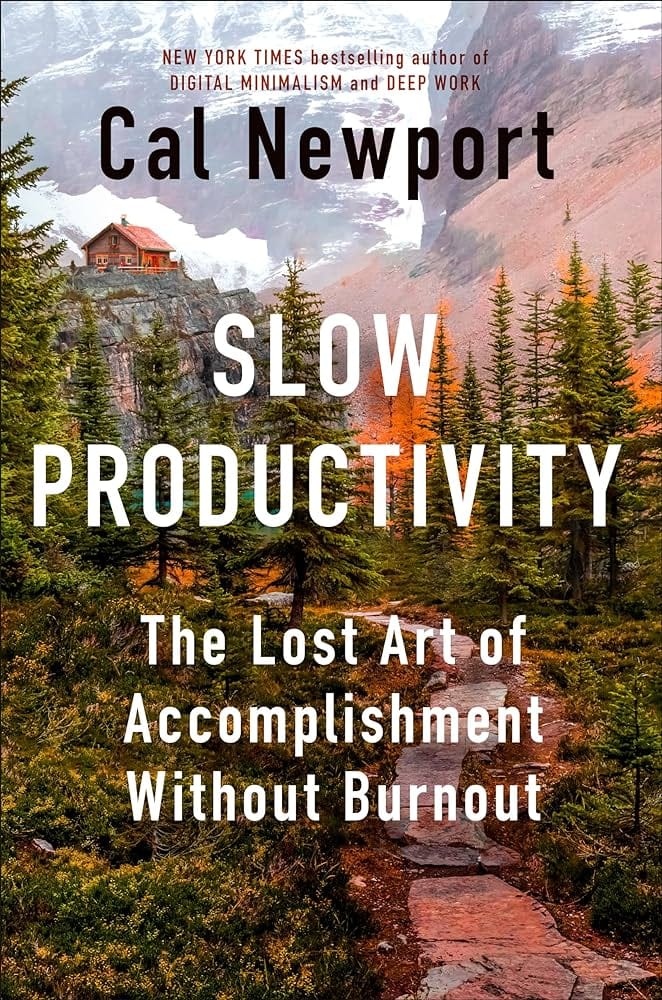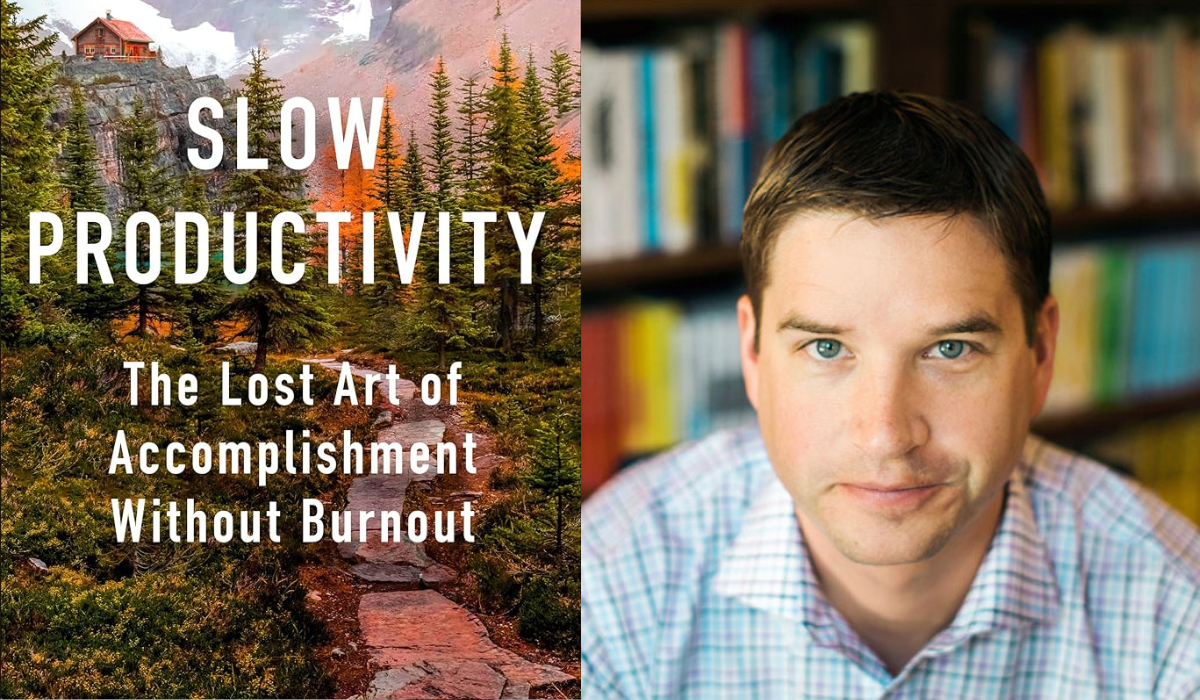Bestselling Author Cal Newport Shares His Groundbreaking Philosophy for Doing Impactful Work—Without the Burnout
As one of the world’s top productivity experts, you might expect Cal Newport to be incredibly busy and efficient. You might imagine him hustling, charging through tasks and getting more done in a few hours than others might do in days.
However, Newport does things differently. He believes there’s a better way to do meaningful, impactful work while avoiding busyness and burnout. He calls it “slow productivity,” and it’s a philosophy he follows himself to produce work that matters.
So, how can all of us embrace “slow productivity” to work more sustainably—with more calm, creativity, and clarity—on the things that matter to us the most? This week, The Sunday Paper sat down with Newport to find out.
A CONVERSATION WITH CAL NEWPORT
Why is our current definition of “productivity” broken, and what’s a better definition?
Our current definition focuses on visible activity as a proxy for useful effort. I call it pseudo-productivity. It’s broken because visible activity often can be unrelated to actually producing stuff that has value. When we put ourselves in a world of electronic communication, this definition of productivity becomes particularly harmful, because now with email or Slack, I can demonstrate visible activity at a very fine granularity, at a very high frequency, at any moment of my life.
This ability to demonstrate that we’re doing stuff at all times is the origin of the burnout problem. Slow productivity is an alternative that’s much more focused on outcome and producing stuff over time that’s really valuable and that you’re proud of—but doing so in a way that’s sustainable for human beings.
How can we catch ourselves if we’re in what you call “aimless overwhelm” and redirect our efforts?
Switch from an activity-based mindset to an outcome-based mindset. You might say, What am I working on this week that I’ll be proud of at the end of the week? What am I working on this month that I could be proud of at the end of this month? Then, what matters is how much progress you make toward that goal each day. This gets you away from a pseudo-productivity mindset—that thinking that busy is good and lack of busy is bad.
One idea from the book is to make a distinction when you’re looking at the things you’ve agreed to do: What are you working on actively right now? And what are you waiting to work on? Then, make a commitment to yourself that only when you finish what you’re actively working on will you then work on something new from that big list of things you’re waiting to work on. Simply having this two-tier system for thinking about your commitments—“active” and “waiting to be active”—can lead to a completely different experience of workload. Over six months, you’re probably going to complete more things total. And in the moment, with fewer things you’re actively working on, you won’t feel as overwhelmed.
“Slow productivity” is based on three principles: do fewer things, work at a natural pace, and obsess over quality. What do each of these principles look like in your life?
When it comes to doing fewer things, I try to be careful about the total number of different things I’m trying to do well. For the last 20 years, I’ve just had two things on that list: writing and academic computer science. I want to write books and articles, academic and non-academic. Because of that focus, there’s a lot of other things I’m asked to do where I just say, “No.”
As for working at a natural pace, I try not to do too many things per day. One of the big things I embrace is seasonality: I take my summers much slower than other parts of the year. For example, I’m having a busy semester right now because I’m teaching and doing a book tour. But I’m not teaching or doing a book tour in the Fall, so those seasons will balance each other out. If I go all out all the time, my battery’s going to empty.
Obsessing over quality for me is all about my writing craft. How do I become a better writer? How do I find new challenges to help me do that? I work backwards from this mantra: “Make the writing as good as possible, and then the other stuff will work itself out.” That’s been a mantra of mine my whole career.
It sounds like working backwards is a theme for you …
When you work backwards from, “Here’s what I want—here’s what I want my life to look like or what I really care about in my career,” then it’s much easier to say “no” to the stuff that doesn’t push you toward that goal. When you’re working forwards, everything is potentially useful and you end up doing so much that nothing really gets done. When you work backwards, you’re always asking, “What does that have to do with my vision?” It’s a great framework for thinking about planning.
What’s the No. 1 thing each of us can do to cultivate a slow productivity mindset?
You have to abandon the idea that busyness is valuable. That’s the thing that makes slow productivity scary. That’s the thing that makes slow productivity impossible. It’s also the thing that makes slow productivity absolutely necessary.
This idea that busyness has value has been ingrained in us since roughly the mid 20th century—the notion that we’re all on a factory assembly line, and if you stop working as fast as everyone else, the cars are going to stop being built. But when you study people who use their brains to create valuable things, it’s not an assembly line. It’s not frantic activity all day. It is much more varied and interesting—and ultimately, human.
Busyness is not valuable. Creating things that are valuable is valuable.

Cal Newport is a professor of computer science at Georgetown University where he is also a founding member of the Center for Digital Ethics. He is a New York Times bestselling author, a contributor to The New Yorker and hosts the Deep Questions podcast.




